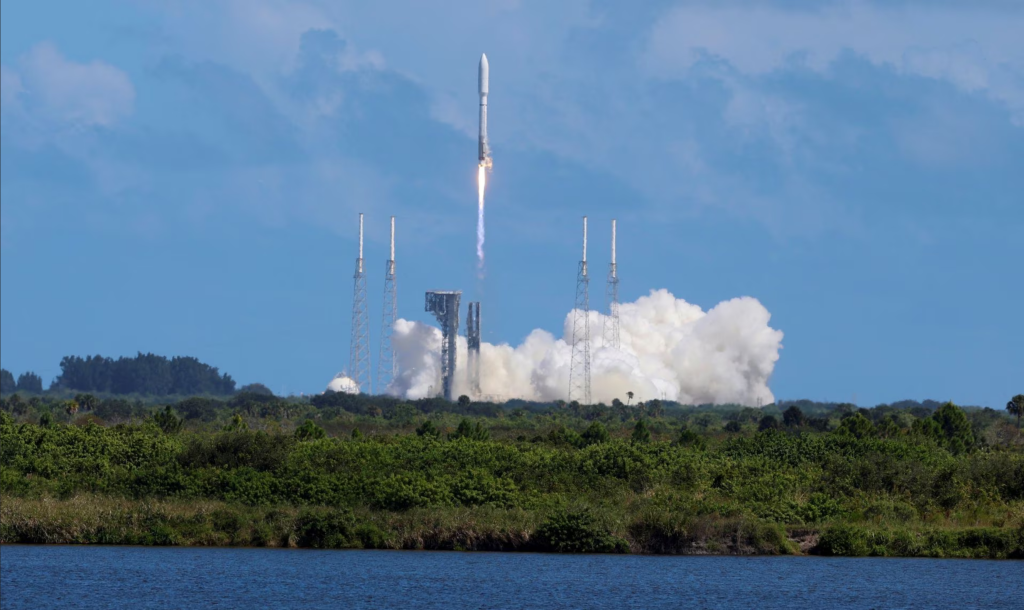After Starlink, Amazon‘s space ambitions took a giant leap forward this Friday, as it successfully launched its first two test satellites for its Project Kuiper, a global internet service in the making. Flying atop a United Launch Alliance Atlas V rocket, the prototypes are the frontrunners of a large constellation Amazon aims to deploy. With nearly 5,000 Starlink satellites already orbiting Earth, Elon Musk‘s SpaceX has been the only contender in the space-based broadband arena. But now, Amazon is officially in the race.
Amazon has committed to a $10 billion investment in Project Kuiper
Amazon has been relatively hush-hush about the details surrounding these initial Kuiper satellites, produced in the company’s Redmond, Washington plant. However, what’s clear is that Amazon isn’t merely dipping its toes in these cosmic waters. The company has committed to a whopping $10 billion investment in Project Kuiper and has regulatory deadlines to meet. The U.S. Federal Communications Commission (FCC) is mandating that half of the planned 3,236 Kuiper satellites be operational by 2026.

One of the intriguing aspects of Amazon’s foray into this sector is its focus on affordability. The company plans to manufacture consumer terminals at a cost of $400 each, notably cheaper than SpaceX’s $599 Starlink terminals. This move could potentially make the technology more accessible to individual consumers, aligning with Amazon’s broad customer base.
But the journey to space isn’t without its hiccups. Amazon is currently facing a shareholder lawsuit regarding its bulk launch deal for 83 rocket launches, a record-breaking commercial procurement. Critics claim that Amazon failed to consider more cost-effective options, like SpaceX’s reusable Falcon 9 rockets, which have been central to Starlink’s quick ascent. Time will tell how these two giants fare against each other, and if there will ever be a third contender in this race.
RELATED:
- Super Deal: iPhone 13 down to just ₹39,999 for a limited time on Amazon India
- Sony WH-1000XM5 Wireless Headphones at its lowest price on Amazon India!
- Best Wireless TWS with Unique Design in 2023: Nothing, Sony & More
(Via)







